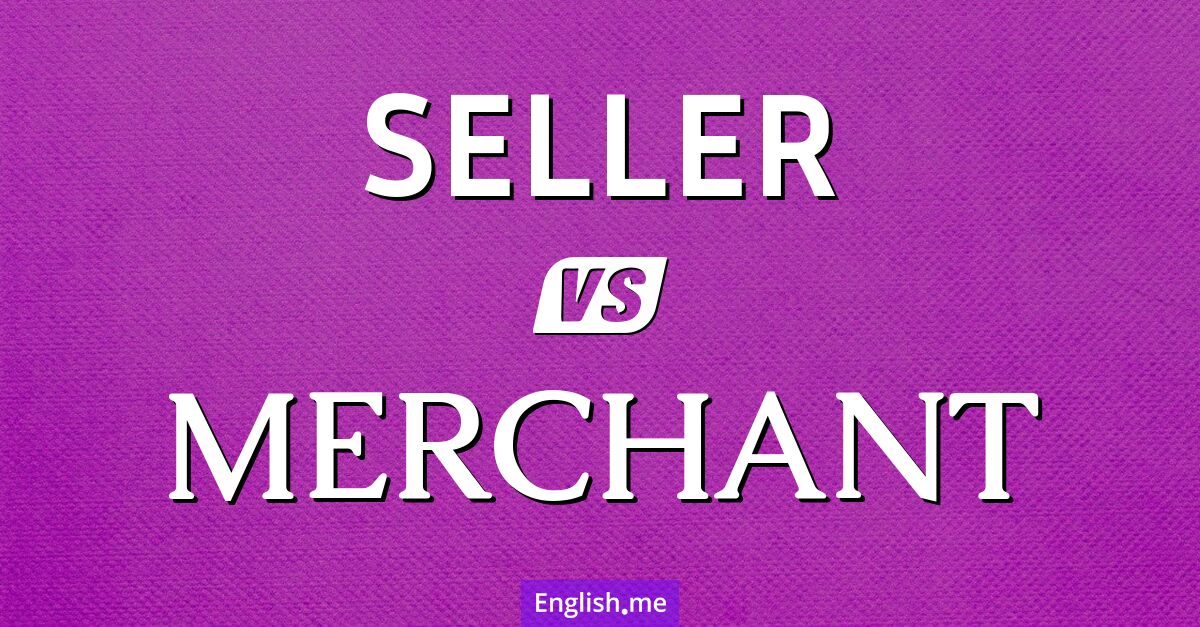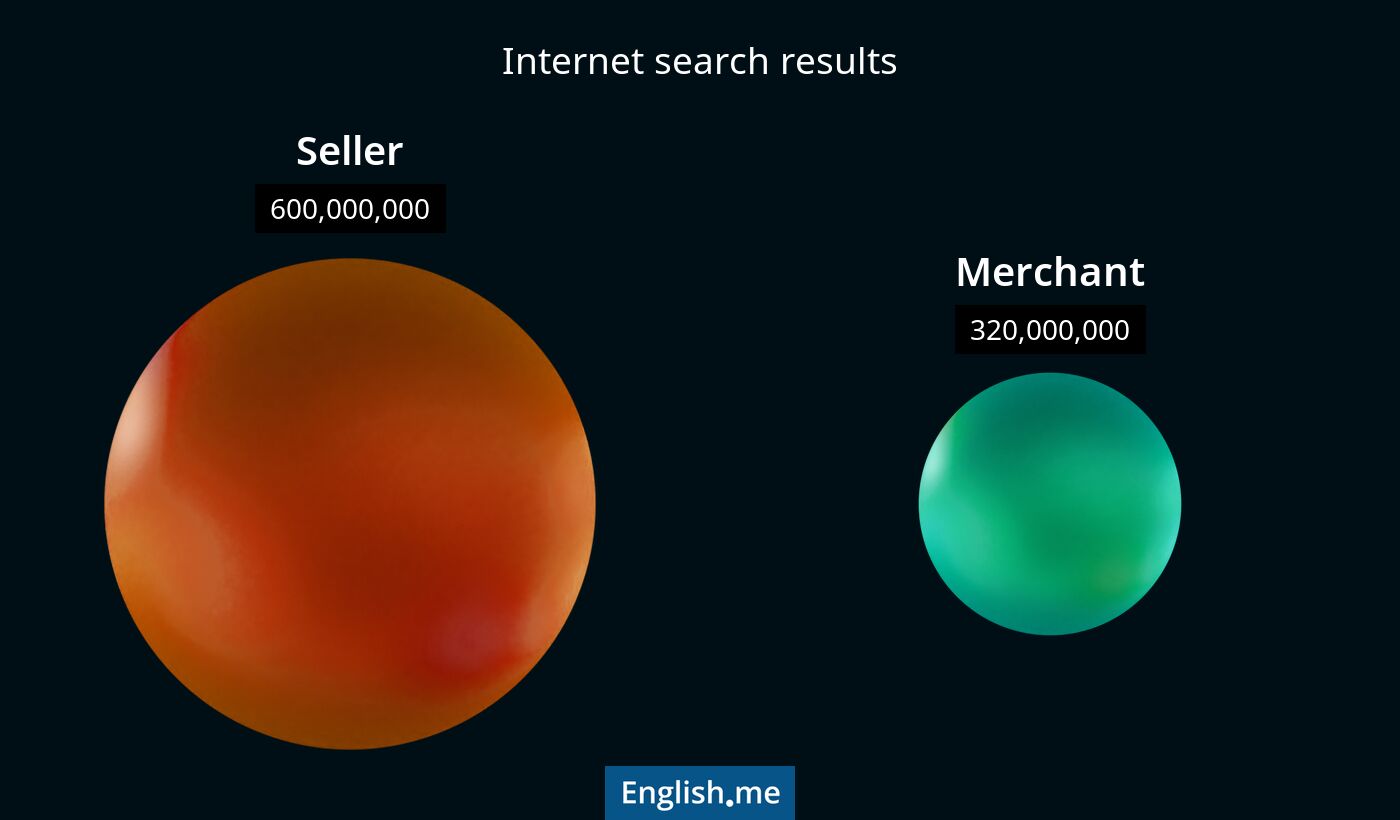"Seller" vs. "merchant": two faces of trade
Reviewed and edited by  Lloyd Cooper 18/10/2024, 16:35
Lloyd Cooper 18/10/2024, 16:35
English.me team member

 What is similar?
What is similar?
Both "seller" and "merchant" refer to individuals or entities involved in the sale of goods or services.
 What is different?
What is different?
A "seller" is a more general term that can refer to anyone who sells something, while "merchant" typically implies a professional or business entity engaged in the trade of goods, especially in larger quantities or as part of a business.
 Which one is more common?
Which one is more common?

 Examples of usage
Examples of usage
Seller- The seller offered a discount to close the deal.
- She is a top seller on the e-commerce platform.
- The seller was willing to negotiate the price.
- The merchant set up his stall early in the morning.
- Local merchants are preparing for the holiday shopping season.
- In medieval times, merchants traveled long distances to trade their spices.

 English
English español
español française
française italiano
italiano deutsche
deutsche 日本語
日本語 polski
polski česky
česky svenska
svenska Türkçe
Türkçe Nederlands
Nederlands